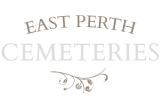Henry Hutton Parry
Pioneer Memorial Service 1993
Royal Western Australian Historical Society's
Annual Pioneers Memorial Service
on Sunday 13 June 1993 at St Bartholomews Church, East Perth Cemeteries,
Commemorating The Right Reverend Henry Hutton Parry 1826-1893
Bishop of Perth 1877-1893
Citation by Mervyn Parry
It is a nice thing indeed for members of the Parry family to be able to join in with members of the W.A. Historical Society in honouring the memory of a forbear who played a significant part in the development of Western Australia, last century.
Henry Parry, (my grandfather), came to Perth in 1877, after a background in both England and The West Indies, and in casting our lot for us in this fair and pleasant land, we share something with the family of our present Governor whose great grandfather also came here from The West Indies, just a decade earlier. I feel qualified to bring in this comparison because my mother was a Burt.
I like to think that back in the palmy days of the British Empire; these movements of prominent individuals from one colony to another must have brought new ideas and experience to bear here and to break down inward-looking tendencies and feelings of isolation.
I must just briefly mention the bare biographical details of the man we are honouring: - Bishop Parry's father was the second Bishop of Barbados, the island that was an important focus of British interests in the widespread West Indies. Both father and son must have witnessed the difficult economic times experienced there as a result of the abolition of slavery and the collapse of the once flourishing sugar industry. After his university and theological education back in England, Henry Parry served the Church in the West Indies for a total of about 23 years, successively as curate, priest, College tutor, archdeacon, vicar-general and co-adjustor Bishop; and having succeeded his father, as the third Bishop of Barbados.
His stay in that office came to an early end when (in 1864) his wife's ill-health compelled him to return to England, to other less demanding parochial work there. It was not long before he was offered the Bishopric of Colombo, but his wife's health obliged him to turn down that option. Then, in 1876 when the first Bishop of Perth, Matthew Hale, had transferred to Queensland, the Church authorities here asked the Archbishop of Canterbury to find them a successor - and his choice fell on Parry.
Henry Hutton Parry, accompanied by his wife and three children, accordingly arrived here in May 1877, and was destined to spend the last 16 1/2 years of his life here, performing the onerous and various duties as second Bishop of Perth. Barely six months later, Parry's wife again became very seriously ill, and she died in November 1877.
In April 1879 the Bishop re-married, his new wife being the widowed Mrs Mary Alexander, a daughter of George Walpole Leake. They subsequently produced four children, Theodore, Herbert, Lionel, and Maude. Like Bishop Hale before him, he had the great personal tragedy of losing one of his sons (Theodore aged 12) in a boating accident on the Swan River. For most of his time here, Parry had to share the often difficult and primitive conditions existing in Western Australia. Doubtless he found many comparisons and contrasts between the West Indies and Western Australia.
In both places his little home base was quite a pleasant one - at Bridgetown in Barbados and then here in Perth. But he had much travelling to do in his widespread diocese.
The state of communications exercised exeryone's attention in those days. When he arrived here, as in The West Indies, local shipping played a very important role for those whose work required them to travel about, and for land transport the horse still reigned supreme. In 1877 the first Government railway in WA was under construction (Geraldton to Northampton) , and later in that year, the telegraph line to Adelaide was completed and opened for sending messages by wire.
Thus in some respects progress was evident, but in general the colony's development was painfully slow in the 16 1/2 years he held office here - the span of time between the end of the convict system and the start of the gold rush.
It was largely as a result of primitive communications that Parry met his death. The railway line between Perth and Bunbury opened in May 1893, but he was carrying out his pastoral duties well to the South of Bunbury at our own remote Bridgetown in November 1893, which necessitated his travelling in an open sulky. Already in sensitive health due to two short illnesses he suffered earlier in that year, such exposure resulted in his becoming seriously ill upon his return to Bunbury. Despite the efforts of the two doctors who hurried from Perth to treat him, his condition rapidly deteriorated. His wife and children were summoned and were present when he died (from Pneumonia) on the 15th November 1893. Dr Harry Kelsall, a brother-in-law to Henry Parry, was one of the doctors concerned. A son of his, Dr George Kelsall, is present here today.
Henry Parry's widow lived on until 1909 and was buried here with him. Six children survived him and all but one of them made their lives and careers here and made their contributions to the life of the community in many different ways.
Though my own father was only eleven when he lost his father, I understand that Henry Parry was a good father devoted to his children, and daughter Maudie attests to this in various things she has written.
And so we give thanks for the life, work, example and inspiration of Henry Hutton Parry.



